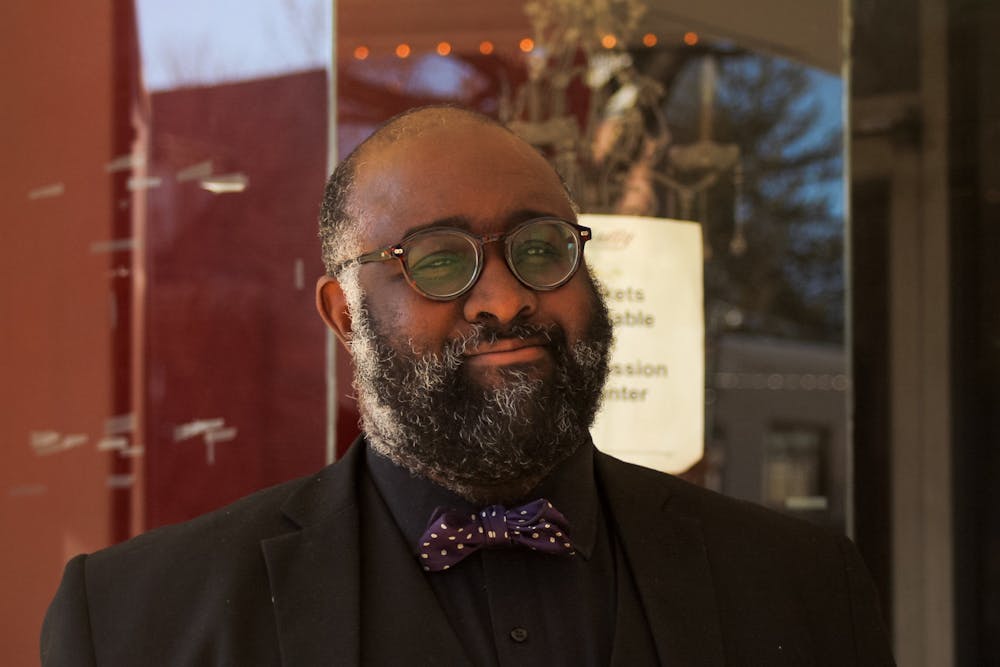“'It's not just about you, it's about bringing people with you,'” he said they taught him. “'It's about uplifting people. Whatever you learn, you should teach people.'”
Washington subsequently recruited Wiley and Everett last fall to collaborate with him for the festival. Everett and Wiley — like Washington — are based in the Triangle area.
Hosting the festival at the Varsity Theater allows for a local audience to experience the work of multiple Black content creators, Washington said.
“We're better together,” Washington said. “Instead of me trying to put my own movie out there and draw a crowd and help people, why don't we come together and start a moment?”
Specifically, the three hope to start a moment of inspiration. By showcasing their films, the filmmakers hope the festival will give Black creatives inspiration to draw from.
For Everett, he was inspired throughout the filmmaking journey by watching movies from the likes of John Singleton and Marco Williams telling Black stories on screen.
“Attending film festivals prior to making my first film really gave me the confidence,” Everett said. “When I saw other African Americans showcasing their work, talking about their process and networking with those folks as well, (that) really inspired me to do what I'm doing now."
Featured films
Everett’s film, "Wilmington on Fire", tells the story of the Wilmington Massacre of 1898. He cited Singleton’s "Rosewood" and Williams’ "Banished" as inspirations behind the production.
When he began making the film in 2011, Everett said he felt there wasn't much awareness of the massacre and needed to be addressed.
“You know what, the time is now,” he said. “Someone needs to tell the story about this tragic event in North Carolina. And I decided to do it.”
Everett is also developing a sequel to the film, the trailer for which will be shown during the festival.
To get the day's news and headlines in your inbox each morning, sign up for our email newsletters.
Wiley had similar motivations for his film, "Dar He." The film, which he adapted from a play he wrote in 2005, addresses the life and legacy of Emmett Till. Wiley took an ambitious approach to the movie, however, by playing all 36 characters on screen.
His friend and fellow filmmaker, Rob Underhill, initially proposed the concept of Wiley playing every character. In taking on every role, Wiley hopes to personalize the viewing experience for the audience.
“They see themselves, they see humanity in Emmett, they see the humanity in Mamie Till-Mobley,” Wiley said. “I become every man in the piece in the figurative sense.”
Washington’s film, "Save The Dad Bod", takes an autobiographical approach. In 2013, he discovered he had kidney cancer after his now-wife encouraged him to go see a doctor for an oddity around his core area.
The documentary encourages men to see a doctor regularly, using his own experience as an example. A 2016 study from the Cleveland Clinic found that only 60 percent of men go to a physician for an annual checkup.
In his film, Washington provides a testimony of his life to send a message.
“We look at men as a whole, we look at men in a family setting and we look at the individual,” Washington said. “We try to answer the question: why aren't men going to the doctor?”
Looking ahead
The combination of films brings a unique variety to the Varsity Theater. Though they touch on different topics, Everett said they dive into themes and situations relevant to the Black community.
“I think that all three deal with the Black experience,” Everett said. “To me, all three fields represent needed dialogue and conversation.”
Down the line, the trio hopes to sustain the event for years to come.
The mission moving forward is for more Black creators to become involved and raise a generation of filmmakers within the community.
Wiley’s 13-year-old son, Jordan, was commissioned by Washington to make a three-minute short film, set to premiere after "Dar He" at Saturday's festival. As a young filmmaker, Jordan often makes YouTube videos and tells stories in a more digitized way.
Wiley said his son's early interest in storytelling through modern technology and online mediums like YouTube and TikTok mirrors his own.
“Those stories don't last long, they're two minutes, three minutes, four minutes long,” Wiley said. “But they're shorts. And that's where we are heading as society. We're taking in content that is shorter. And we want to take in content that is not only shorter, but also impactful.”
Washington, Everett and Wiley all expressed their hope to see the festival grow after this year. They want young, Black filmmakers to see representation in the field and further pursue their craft.
The Pioneers share the same sentiment, as Hubbard expressed her excitement for the productions.
"The films are going to be fabulous," Hubbard said. "And it's our way of supporting the real picture of who we are in this area and in this country."
In the future, Washington said that the event would accept applications for people to place their films in the festival. He hopes the festival can even provide a scholarship to an aspiring filmmaker to participate.
“It's your responsibility to tell your own story,” Washington said. “Because if someone else does, it’s not going to be as good as you would do it … They're either going to tell it wrong, or it's not going to be told at all.”
@jerem11ah
@DTHCityState | city@dailytarheel.com | elevate@dailytarheel.com




